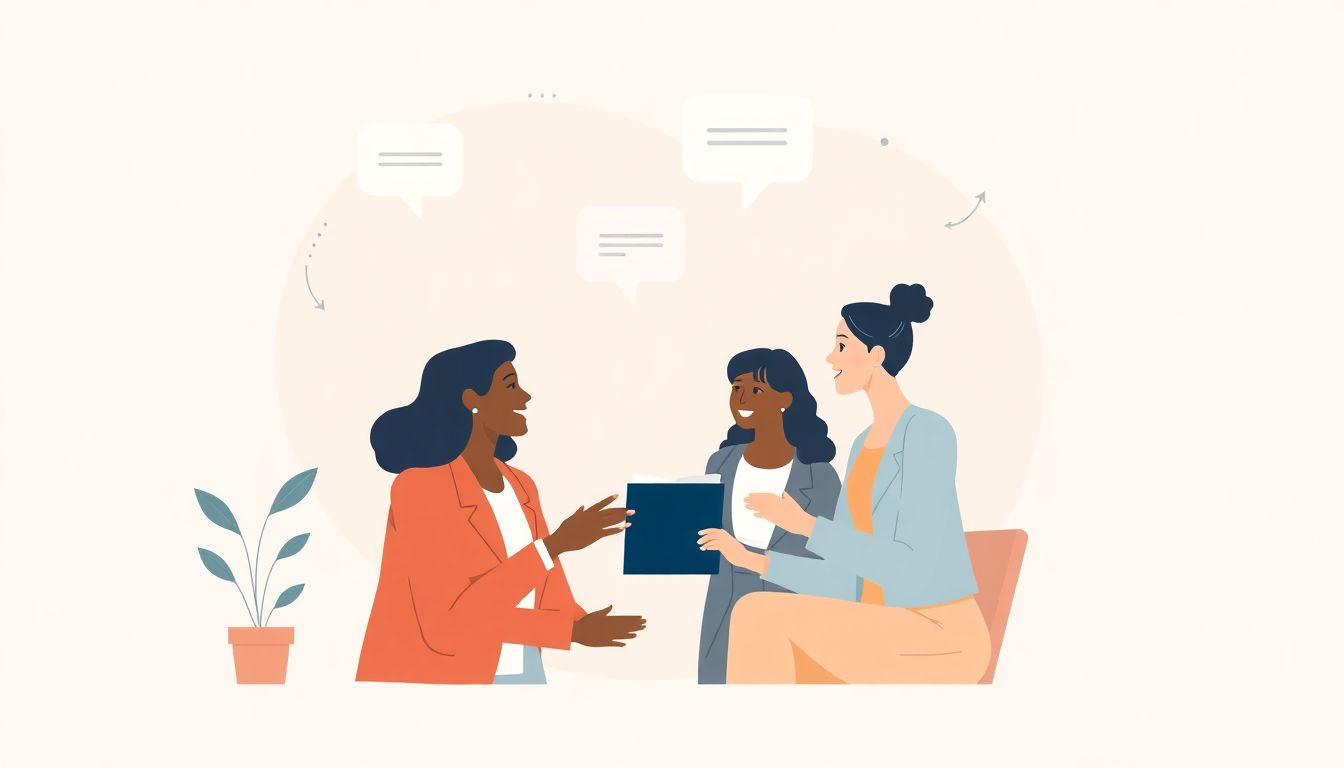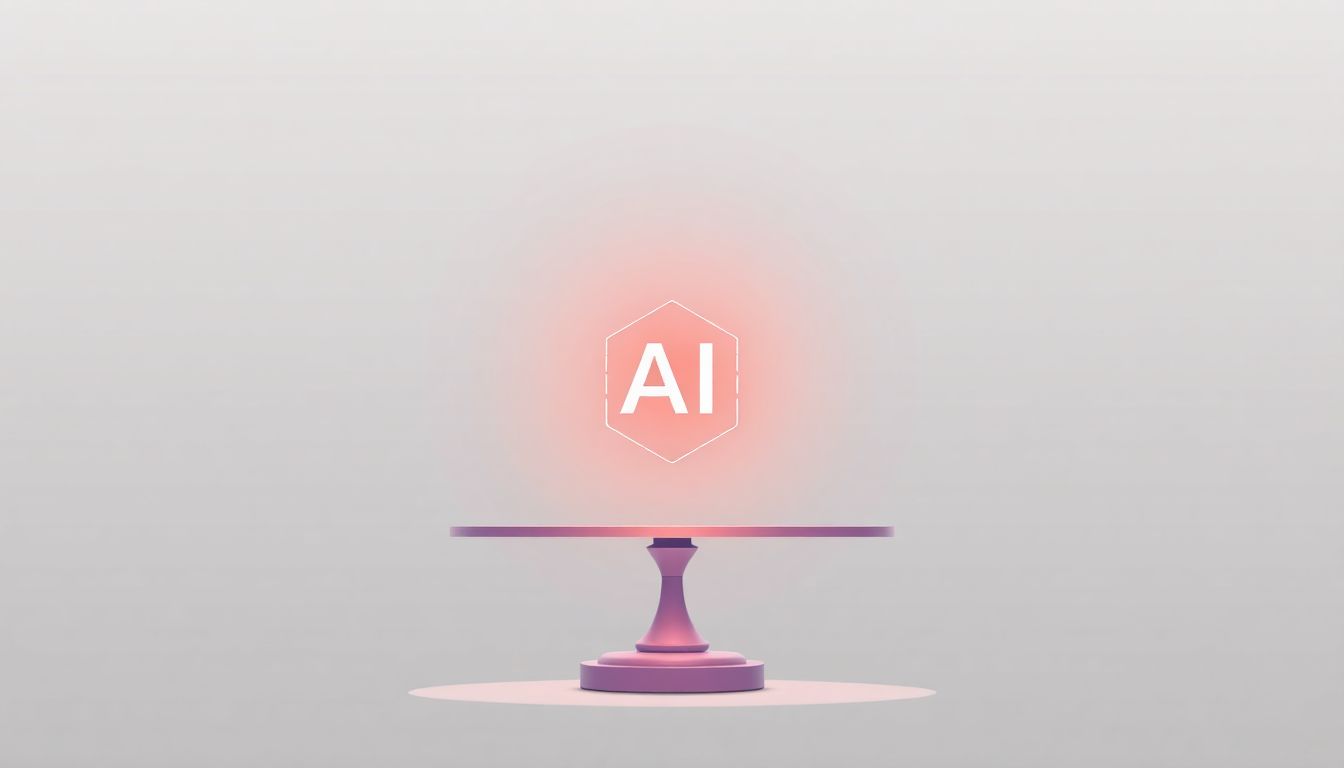Workplace disputes can feel daunting, can’t they? You might be grappling with misunderstandings, communication breakdowns, or highly charged emotions. It’s completely normal to feel overwhelmed when trying to resolve conflicts in a professional setting.
But hang tight! If you keep reading, you’ll discover some awesome prompts and tips that can transform how you handle these sticky situations. With a little help from ChatGPT, you could turn those tense moments into productive conversations.
From understanding different perspectives to crafting collaborative solutions, we’ll explore how to leverage ChatGPT for effective workplace dispute resolution. Let’s dive in and find some peace together!
Key Takeaways
- Workplace disputes can be resolved effectively using tailored prompts with ChatGPT.
- Prompts can facilitate mediation, clarify misunderstandings, and support role-playing for practice.
- Encouraging open dialogue and understanding diverse perspectives is crucial for conflict resolution.
- Collaborative solutions help ensure that all parties feel valued and promote teamwork.
- Effective communication strategies can enhance discussions and reduce defensiveness during conflicts.
- Create specific, clear, and open-ended prompts for the best outcomes tailored to your situation.

Effective ChatGPT Prompts for Workplace Dispute Resolution
Using ChatGPT to resolve workplace disputes can significantly improve communication and understanding among team members.
Effective prompts can guide the AI to conduct role-plays, clarify misunderstandings, and support mediation efforts.
Here are some practical prompts you can use:
- “Act as a mediator in a conflict between two colleagues who disagree on project responsibilities. What key questions should I ask to ensure both sides feel heard?”
- “Suggest strategies for resolving a conflict over differing work styles between a manager and a team member.”
- “Provide a list of techniques to facilitate a respectful dialogue between two coworkers with opposing views on a project.”
Examples of Prompts for Conflict Resolution Scenarios
When it comes to conflict resolution, the right prompts can help elucidate viewpoints and drive towards a solution.
Here are some examples you can use in various workplace scenarios:
- “Describe a situation where two team members disagree on a project deadline. What would be the best approach to mediate this conflict?”
- “What are the steps to take if two employees escalated a disagreement into personal attacks? Outline an effective resolution process.”
- “Provide a hypothetical scenario where a team leader must address poor communication between team members. How should they approach this?”
How to Use ChatGPT for Mediation in the Workplace
Using ChatGPT for mediation in the workplace can streamline the process and improve results.
Start by introducing the situation clearly. Here are some actionable steps you can follow:
- Clearly state the conflict that needs mediation.
- Provide background information on the parties involved and their perspectives.
- Ask ChatGPT to outline initial steps for mediation, including setting ground rules.
- Request role-playing scenarios where you can practice the conversation with ChatGPT.
- Follow up with debrief questions on insights gained and how to proceed.
Prompts for Understanding Different Perspectives in Disputes
Understanding diverse perspectives is crucial for resolving conflicts effectively.
Here are some prompts that can help facilitate this understanding:
- “How can I encourage my team to share their perspectives on a current dispute? Provide some engaging questions.”
- “List ways to create empathy between conflicting parties. What dialogue prompts can I use?”
- “Simulate a conversation between two colleagues with opposing views on a project. What key points should be included to foster understanding?”
For more insights on using AI creatively, consider checking out our post on ChatGPT for HR, where we explore various applications of AI in human resource management.
You might also find it useful to read about prompts for mental health, which can aid in facilitating sensitive conversations in the workplace.

Creating Collaborative Solutions with ChatGPT Prompts
Collaborative solutions are key when it comes to resolving workplace disputes.
You can leverage ChatGPT to generate ideas that involve all parties, creating a sense of ownership and teamwork.
Here are some prompts to facilitate collaboration:
- “List five ways coworkers can collaborate on finding a solution to a project disagreement.”
- “Draft a framework for a team meeting aimed at resolving a conflict. Include agendas and group activities that promote teamwork.”
- “Generate a creative exercise to help two conflicting parties brainstorm solutions together.”
By encouraging collaboration, you create a positive environment where everyone feels valued and heard.
Prompts for Role-Playing Difficult Conversations
Role-playing can be an invaluable tool for working through tough conversations in a safe space.
You can use ChatGPT to simulate these conversations and build confidence in addressing real-life situations.
Here are some role-playing prompts to get you started:
- “Act as an employee addressing their manager about an overwhelming workload. What should I say?”
- “Simulate a conversation where a team member must give constructive feedback to a colleague. What points should they cover?”
- “Role-play a scenario where two team members need to resolve a misunderstanding. What should each person say?”
These prompts can help individuals practice their responses and develop effective communication skills.
Using ChatGPT to Facilitate Communication in Conflicts
Effective communication is often the backbone of conflict resolution.
ChatGPT can help you develop strategies to enhance dialogue among conflicted parties.
Here are some prompts you can utilize:
- “What strategies can I use to initiate a constructive conversation with a colleague I’ve had a conflict with?”
- “Draft an email that addresses a misunderstanding between team members while promoting open dialogue.”
- “Generate a list of ground rules for a conversation focused on resolving a workplace disagreement.”
These communication strategies can lead to greater understanding and less defensiveness during discussions.
Tips for Crafting Your Own Prompts for Dispute Resolution
Creating your own effective prompts can personalize your interaction with ChatGPT and tailor it to your specific needs.
Here are some tips for crafting effective prompts for dispute resolution:
- Be specific about the conflict or scenario you want to address.
- Use clear and concise language to avoid ambiguity.
- Incorporate roles involved in the dispute to generate role-specific responses.
- Ask open-ended questions to promote deeper exploration of solutions.
- Test different variations of prompts to see which yield the best results.
Creating tailored prompts will ensure you get the most relevant and helpful responses from ChatGPT.

Benefits of Using ChatGPT in Resolving Workplace Disputes
Using ChatGPT for workplace dispute resolution comes with a range of benefits that can transform conflict management.
Firstly, it provides a neutral perspective, allowing parties to express themselves without fear of bias.
With AI assisting, employees can explore different approaches to resolving conflicts in a safe environment.
Additionally, ChatGPT can help reduce the time spent on lengthy mediation sessions by offering quick insights and suggestions.
Here are some prompts to explore these benefits:
- “List the advantages ChatGPT offers when mediating workplace disputes.”
- “How can using AI like ChatGPT improve communication between team members?”
- “What impact does ChatGPT have on conflict resolution efficiency in the workplace?”
In a nutshell, integrating ChatGPT into your dispute resolution process can lead to more effective and amicable outcomes, ultimately fostering a better workplace atmosphere.
FAQs
ChatGPT can assist in resolving various workplace disputes, including interpersonal conflicts, misunderstandings, team dynamics, and communication issues. It offers tailored prompts to navigate these challenges effectively.
To craft effective prompts, focus on clarity, specificity, and purpose. Address the conflict with open-ended questions, encourage perspective-taking, and aim for constructive solutions. Tailor prompts according to the unique context of the dispute.
Using ChatGPT for mediation enhances communication, provides neutral feedback, and generates creative solutions. It allows individuals to explore scenarios safely, making it easier to navigate difficult conversations and reach resolutions collaboratively.
Yes, ChatGPT can facilitate understanding of different perspectives by prompting users to articulate their views and encouraging empathy. By framing questions about feelings and motivations, it promotes a more comprehensive view of the conflict.
